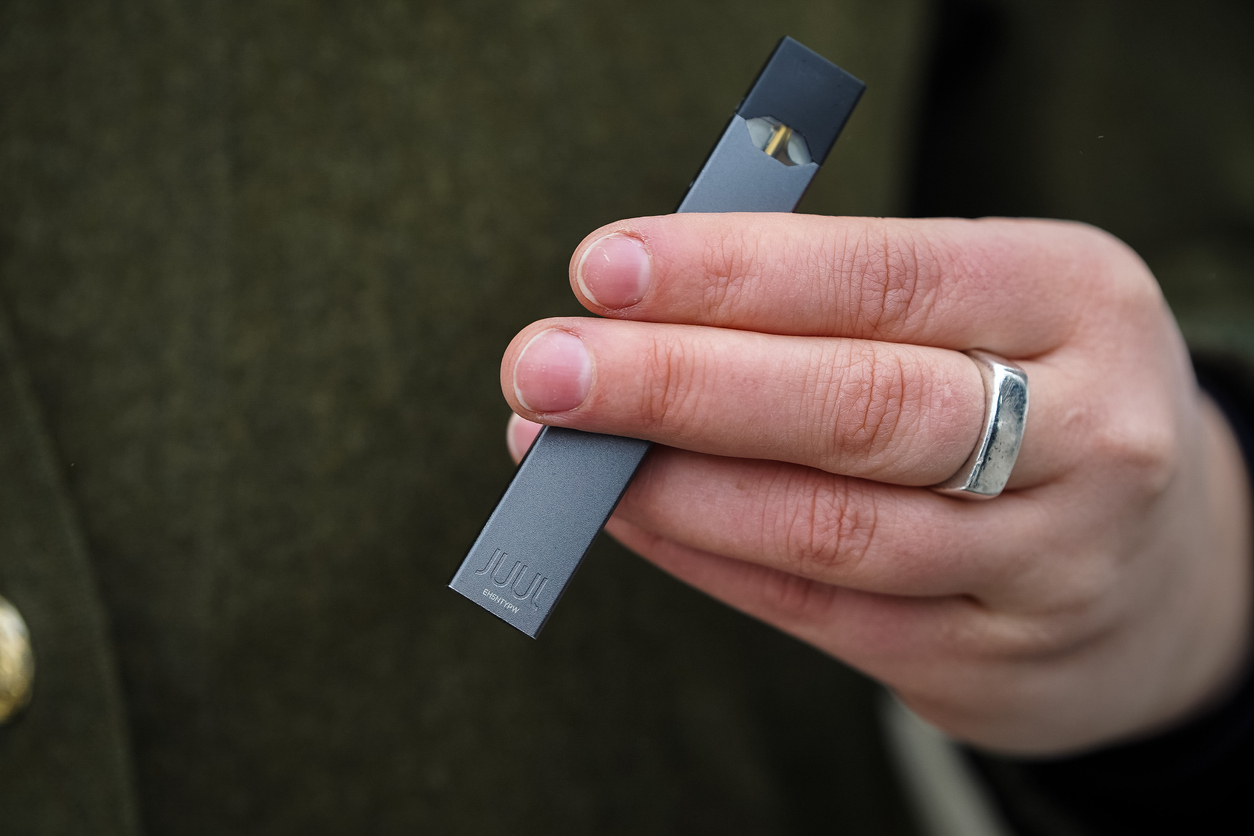The Food and Drug Administration ordered Juul Labs Inc. to stop selling all of its e-cigarette products in the United States on Thursday. According to the agency, retailers should stop selling Juul products and consumers should look for alternatives.
Juul could challenge the order in court or through the FDA's appeals process. The company did not respond immediately to the FDA's announcement.
The FDA stated in a press release that Juul's application to keep its vaporizers and refill pods on the market lacked adequate evidence on the toxicological profile of its products.
According to the FDA, some of the research Juul submitted to the agency raised concerns due to insufficient and conflicting data, including potentially harmful chemicals leaching from the company's refill pods. According to the FDA, there is no evidence of an immediate hazard associated with the use of Juul.
The FDA informed Juul on Thursday that all of its products on the market must be removed or the agency will take action against Juul and retailers. According to the agency, law enforcement will not take action against consumers who use Juul products.
The FDA advised Juul users and cigarette smokers who want to switch to e-cigarettes to consider other products approved by the agency.
The marketing denial order comes after a nearly two-year review of data presented by the vaping company, which sought permission to keep its tobacco- and menthol-flavored products on the market in the United States, where Juul has recently been the No. 2 seller.
The FDA has cleared the way for Juul's main competitors, Reynolds American Inc. and NJOY Holdings Inc., to continue selling tobacco-flavored e-cigarettes. Until The Wall Street Journal reported Wednesday on the expected denial, industry observers expected Juul to receive similar clearance.
The burden of proving that tobacco products meet the standards set by US law—that their benefits to adult cigarette smokers outweigh any risks or unintended consequences—falls on the company, according to Michele Mital, acting director of the FDA's Center for Tobacco Products.
"Juul had the opportunity to provide evidence demonstrating that their product marketing meets these standards," she explained. "However, the company did not provide that evidence, instead leaving us with serious concerns."
Uncertainty has hung over Juul since the FDA launched an investigation four years ago. Juul's fruity flavors, USB-drive shaped vaporizers, and hip marketing were blamed by regulators, lawmakers, and school administrators for fueling an increase in underage vaping. Juul has been working hard to regain the trust of regulators and the general public since then. It limited its marketing and stopped selling sweet and fruity flavors in 2019.
The FDA order against Juul is a setback for Altria Group Inc., which paid $12.8 billion for a 35% stake in Juul in 2018. Juul was valued at around $38 billion in the deal. Juul's value has since plummeted as a result of regulatory crackdowns and declining sales. As of March 31, Altria valued its Juul stake at $1.6 billion.
After the Journal reported on the expected FDA decision, shares of Altria, which assisted Juul with its FDA application, fell 9.2 percent in Wednesday trading. Altria's stock rose 1% in early trading on Thursday.
Juul soared to the top of the US e-cigarette market in 2018, but it has recently lost ground to other brands. According to Goldman Sachs analyst Bonnie Herzog's analysis of Nielsen data, it fell to second place behind Reynolds' Vuse brand in the 12 weeks ending June 4. It currently sells tobacco and menthol flavored e-cigarette devices and refill pods.
The FDA has been reviewing vaping products in the United States, weighing their popularity among young people against their potential benefits as less harmful alternatives for adult cigarette smokers. To remain on the market in 2020, all e-cigarette manufacturers in the United States were required to submit their products for FDA review.
Since last fall, the agency has ordered the recall of over a million vaping products. For example, in April, the FDA recalled several tobacco- and menthol-flavored e-cigarette products manufactured by Fontem US, a subsidiary of Imperial Brands PLC. Fontem's applications, according to the FDA, "lacked sufficient evidence regarding design features, manufacturing, and stability," and failed to demonstrate that the potential benefit to adult cigarette smokers outweighed the risk to children.
Separately, the FDA is moving forward with a plan to mandate the elimination of nearly all nicotine in cigarettes, a policy that, according to health officials, would upend the $95 billion US cigarette industry and cause millions of people to quit smoking or switch to alternatives such as e-cigarettes. That rule will take years to implement, and tobacco companies may file a lawsuit to challenge it.













